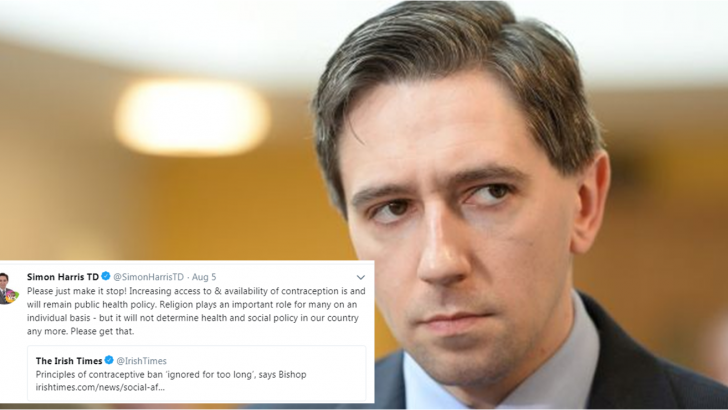“Please just make it stop!” tweeted Health Minister Simon Harris on Sunday last in connection with a report on a conference on Humanae Vitae at the weekend. “Increasing access to & availability of contraception is and will remain public health policy. Religion plays an important role for many on an individual basis – but it will not determine health and social policy in our country any more. Please get that.”
One might think from this that Bishop Kevin Doran of Elphin had called for Church teaching on marriage and sexuality to become national public policy, but even reported excerpts from his speech never hinted at such a suggestion, and rightly so, because the bishop had said no such thing.
Rather, Dr Doran had said that sometimes in the past marriage was understood in a “lopsided” way, unduly focused on procreation and insufficiently focused on the love of a man and a woman, but that today people tend too often to the opposite extreme. In Humanae Vitae Blessed Paul VI had mapped out a more integrated, and wholesome view of marriage, he said, with Pope Francis having in Amoris Laetitia repeated this vision.
Fidelity to this vision, he said, would require rediscovering the natural connection between committed married love and the procreation and care of children, with married people understanding how natural cycles can be embraced both to achieve and to avoid pregnancy. Dr Doran described this as a “challenging way” of living sexuality in marriage, which can be enriching and fulfilling but which should not be misrepresented as somehow easy.
A failure to meet this challenge, the bishop argued, had had impacts on such diverse matters as promiscuity, infertility, artificial reproduction, same sex marriage, and threats to the dignity of women, with the last of these claims provoking heated debate online.
“It may seem to some that contraception has liberated women insofar as it allows them to take control of their own fertility,” he said. “But the fact that they are less likely to become pregnant also takes away from women one of the principle motives or freedoms for saying no to unwanted sex.”
Tweeting about this, Minister Harris twice equated “unwanted sex” solely with rape, heedless of how the term has broader implications. In a 2016 study, for instance, 13% of 17- and 18-year-olds who had had sex said they had felt a little pressure to do so, with 4% saying they felt a lot of pressure, and 6% saying they feared losing their partner if they did not have sex with them.


 Greg Daly
Greg Daly Minister Simon Harris and, inset, his tweet which was picked up by the media
Minister Simon Harris and, inset, his tweet which was picked up by the media 